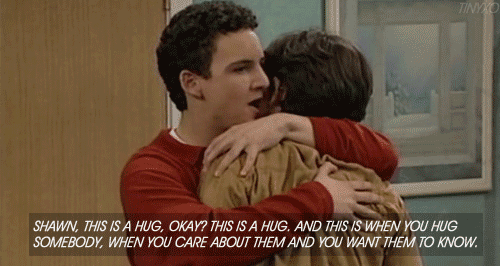Have you ever heard about an abusive parent on the news and had your heart broken, or seen a homeless person on the street and wished there was something you could do? Or perhaps you’ve experienced abuse, addiction or other unfortunate circumstances yourself. If you’re determined to make a difference in others’ lives by working directly to improve the conditions they live in, consider a major in social work.
What You’ll be Doing

As a social work major, you’ll take classes in varying subjects like families and children, social policy, behavioral health, aging and community action. The major gives you a ton of hands-on experience through field work, and many schools require you to complete a minimum amount of volunteer work beginning your first year of college. Social work majors take classes in a number of different fields like sociology, psychology and statistics, so you’ll never be bored.
Upsides

1. “Without social workers those suffering in society would not have anywhere to turn for the services they need. Most people only think of Child Protective Services and taking people’s children away from them. That is one job of thousands in social work, and their actual main focus is to keep families together.” – Rebecca Martin, Graduate Student, University of Maryland
2. “Although we are trained to seek and identify social and cultural issues, we are also trained to look through a lens of hope – hope of ridding individuals, families and communities of these issues…Social workers are actually doing something about (these social issues) and are trying to get to the root of the problems.” – Chelsea Thompson, Stephen F. Austin State University Class of 2010.
3. “The social work profession is called the ‘helping profession’. Being able to learn skills and qualities and traits that you’ll be able to use when you eventually graduate, go out into the real world, interact with clients and help them to achieve their goals. One of the main focuses of social work is meeting the client where they are.” – Catherine Dooley, Graduate Studen, University of Texas – Austin
Downsides

1. “It is a very important job with not a lot of societal appreciation or monetary rewards. Social workers are everywhere.” – Rebecca Martin, Graduate Student, University of Maryland
2. “The most difficult aspect of social work is the realization that you can’t help everyone, and in most cases you won’t even see the fruits of your labor. Not everyone is ready for help or even wants it. Sometimes all you can hope for is that you’ve planted a small seed in another individual that will someday blossom to benefit them.” – Chelsea Thompson, Stephen F. Austin State University Class of 2010
3. “Before being a social work major, I had the privilege of not having to think about a lot of the problems that a lot of people face. And so thinking about those a lot can definitely bring you down…burn out is definitely a very real problem within social work.” – Catherine Dooley, Graduate Student, University of Texas – Austin
Career Opportunities

Job opportunities for a social work major are endless. Social workers are found everywhere: schools, hospitals, counseling centers, private practices, government and much more. Social workers also work with all kinds of people, including infants and children, addicts, the homeless and other populations.
1. Therapist
If you’re always the person your friends come to for advice, and you give pretty darn good advice, consider a career in therapy. You’ll learn how to help others deal with stressful situations and problems. You have to be a good listener, but know when to speak up, too.
2. Mental Health Care Professional
As a mental health care professional, you’ll diagnose and treat those with a range of mental health issues, from bipolar disorder to addiction to depression.
3. Lawyer
Because you graduated with a degree in social work, you’ll have an important perspective on social policy and justice, making you the perfect candidate for law school. After all lawyers and social workers are very similar in that they advocate for those who desperately need help in our society.
4. Caretaker
Compassion is essential for this job. You’ll have to sacrifice your needs and desires for someone else’s, but it’ll all be worth it knowing that you’ve made their days a little easier.
5. School counselor
Not only will you be trained to look for potential issues hindering academic achievement, but you’ll also learn to identify victims of abuse and neglect, and what to do when a child comes to you with a problem. Your intervention can make all the difference in a child’s life.



















